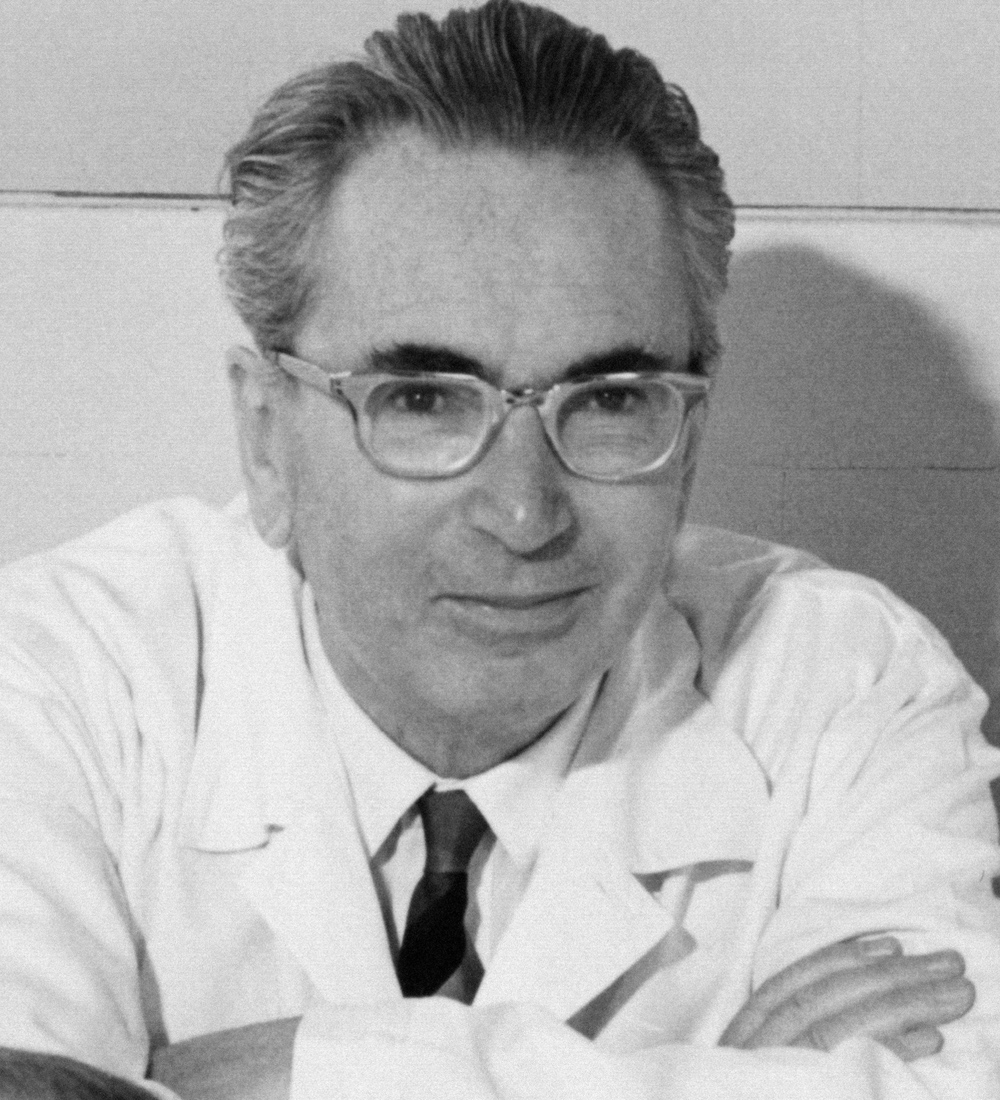On Friday, September 25, 1942 the 37-year old psychologist Victor Frankl was brought to the Nazi Ghetto Theresienstadt (Terezin in today’s Czech republic), along his wife and his parents. At this point Frankl was already a very well regarded doctor of psychology and philosophy. In his early career he already worked alongside with Sigmund Freud and Alfred Adler, who had revolutionized modern psychology in the early 19th century. Being well regarded in his work, Frankl was responsible for the psychology and neurology department in Vienna’s Steinhof Psychiatric Hospital. But Frankl was a jew and there was no place for jews in 1942 Nazi Austria & Germany.
Later Frankl was transported to the Auschwitz concentration camp and from there to Dachau and Türkheim. His wife and his family died as a result of the brutality of the Nazis, leaving Frankl the only family member surviving the concentration camps (one sister of him emigrated to Australia before). On April 27, 1945 the camps were liberated by American soldiers and so was Frankl.
Along the way Frankl had helped many colleagues dealing with their psychological needs during their time in the concentration camps. After his liberation he continued his work by writing 32 books and becoming a world wide expert in the field. Today I want to reflect on one of the big ideas of his first book titled „Man’s Search for Meaning“ („… trotzdem Ja zum Leben sagen – ein Psychologe erlebt das KZ“), in which Frankl describes his life in the concentration camps.

One of the first goals of the NAZIs in concentration camps was to break the new inmates psychologically, Frankl writes. They got stripped not only of their clothes but also of their body hair and all belongings. Immediately afterwards they were assigned a number, so that they lost their original name. In this way the abuse began. The inmates had to share a small bed with 6-8 other inmates, had to fight over necessities like a small piece of bread and got only water soup to eat. Death became a normal thing in this environment because inmates still had to work 10 hour days of hard manual labor and had to expect hard punishment if they didn’t obey.
In this environment Frankl developed a powerful concept for the meaning of life: Every moment of life is worth living, every moment has a meaning even in the face of suffering and death because we know we are loved. If soldiers stripped him down and abused him, he could still decide on his own if he really lets them take his dignity. Frankl describes this idea on several occasions, including one of the most touching passages in his book:
***
„We stumbled on in the darkness, over big stones and through large puddles, along the one road leading from the camp. The accompanying guards kept shouting at us and driving us with the butts of their rifles. Anyone with very sore feet supported himself on his neighbor’s arm. Hardly a word was spoken; the icy wind did not encourage talk. Hiding his mouth behind his upturned collar, the man marching next to me whispered suddenly: “If our wives could see us now! I do hope they are better off in their camps and don’t know what is happening to us.”
That brought thoughts of my own wife to mind. And as we stumbled on for miles, slipping on icy spots, supporting each other time and again, dragging one another up and onward, nothing was said, but we both knew: each of us was thinking of his wife. Occasionally I looked at the sky, where the stars were fading and the pink light of the morning was beginning to spread behind a dark bank of clouds. But my mind clung to my wife’s image, imagining it with an uncanny acuteness. I heard her answering me, saw her smile, her frank and encouraging look. Real or not, her look was then more luminous than the sun which was beginning to rise.
A thought transfixed me: for the first time in my life I saw the truth as it is set into song by so many poets, proclaimed as the final wisdom by so many thinkers. The truth—that love is the ultimate and the highest goal to which man can aspire. Then I grasped the meaning of the greatest secret that human poetry and human thought and belief have to impart: The salvation of man is through love and in love. I understood how a man who has nothing left in this world still may know bliss, be it only for a brief moment, in the contemplation of his beloved. In a position of utter desolation, when man cannot express himself in positive action, when his only achievement may consist in enduring his sufferings in the right way—an honorable way—in such a position man can, through loving contemplation of the image he carries of his beloved, achieve fulfillment. For the first time in my life I was able to understand the meaning of the words, “The angels are lost in perpetual contemplation of an infinite glory….”
***
I think this idea is still very relevant nowadays. In today’s world we increasingly complain about all kind of things, from ignorant car drivers, mean colleagues to laws that our governments pass on us. Doing so lies in our nature, especially when being exposed to the (digital) illusion of the amazing life of our acquaintances on social media. For them, everything seems to go a lot easier than for us.
We usually define being free as being free from regulations. Here I mean regulations in a concrete sense (government regulations or company rules) and also in an abstract sense (you can’t spend more money than you have, you can’t just ignore your partners needs in a relationship). We prefer to have as little rules as possible, to be free in our choices and our style of living. We want to have as much as possible and don’t sacrifice on anything.
I think that in the eyes of Frankl this is not what’s meant with real freedom:
In the context of his idea, you can only reach real freedom by being independent from outside influences: You decide if you are okay with yourself or let someone take your dignity. You decide if you really want to tie your happiness to status, power or wealth. And you decide if you want to change the circumstances: You have the power to stop seeing yourself as a victim and start acting proactively.
His philosophy is an especially powerful one, because it puts each and every one of us into responsibility for ourselves.
The real key to happiness truly lies inside of us individually.
